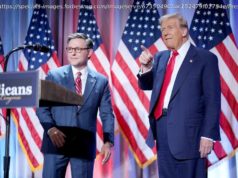Allegations that a key court document was falsified have raised questions about whether the attorneys representing the plaintiff could be penalized.
the Supreme Court’s 6-3 conservative majority ruled in favor of a Colorado web designer who argued she should not have to serve gay customers due to her religious beliefs as a Christian, and that prohibiting her business from doing so would violate her First Amendment rights.
One of the documents that both sides of the case repeatedly referenced was an inquiry that Lorrie Smith received from an engaged same-sex couple asking her to build a website for their wedding. But in the days leading up to the court’s bombshell decision, reports emerged that the inquiry was falsified and the man named in the complaint told several news outlets that not only had he never sent Smith the website request, but also that he is straight and has been married to a woman for the last 15 years.
Those allegations are now raising questions about whether or not the attorneys representing Smith will be subject to repercussions for breaking ethical and procedural rules that bar lawyers from making misrepresentations in court.






